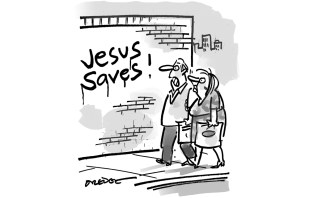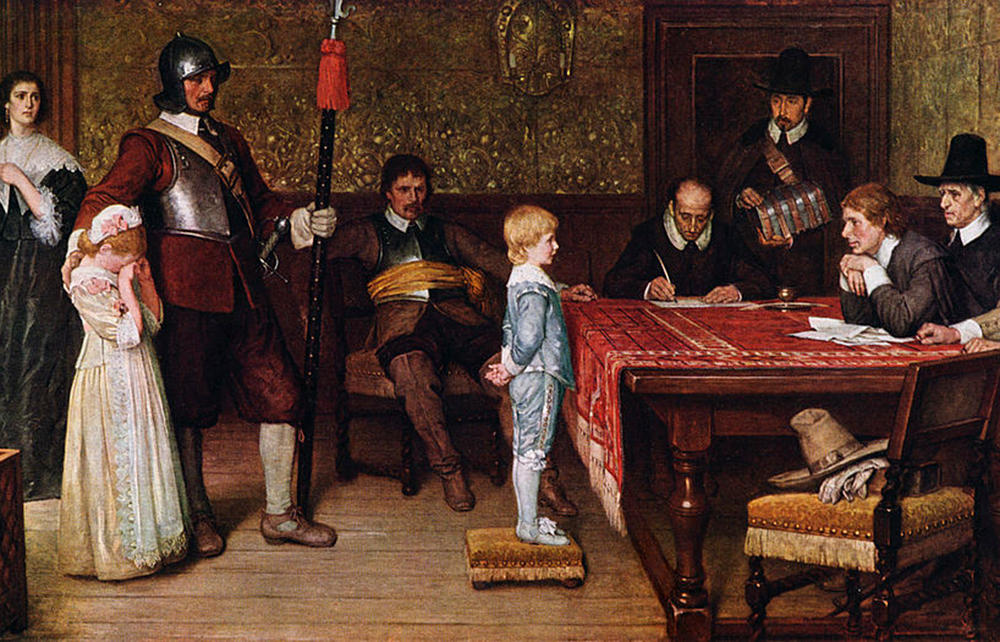Pantomime is meant to be silly and perhaps superficial, but fun. One does not (for example) join an audience for Cinderella to be driven into deep contemplation of life, morality and the cultural roots of human duty. But that is what happened to me last Saturday afternoon while watching the most marvellous performance at Nevill Holt of Rossini’s La Cenerentola, ossia La bontà in trionfo (‘Cinderella, or Goodness Triumphant’).
When I was a youth, nearly 60 years ago, there was a more freewheeling attitude to sin
It was certainly fun, it was beautifully directed, played and sung, and Nevill Holt (my first time there) is out of this world: in the rolling Leicestershire countryside, the setting is stunning, the gardens lovely and the ambience smart and stylish, but without that hint of class anxiety that can sometimes set one’s teeth on edge at Glyndebourne. This opera is wonderfully silly – and the genius of Saturday’s production was that they camped up the silliness. We so often struggle to take opera plots seriously, but on Saturday nobody was trying. It was a relief to be allowed to giggle.
Nevertheless, Rossini does have something to say in Cinderella. His version eschews magic. No pumpkins, no mice, and in place of a fairy godmother a rather mysterious figure, almost a holy man – the Prince’s teacher, Alidoro. Disguised as an itinerant beggar, he throws himself upon Cinderella’s mercy. She takes pity and finds food for him. Recognising her goodness, he reappears and, no longer in rags, arranges for her to go to the ball. He reminds us that God is watching us and knows our sins, and that there will be justice in the end. She, a kind and loving soul, needs no reminding. She too has been watched and judged – by Alidoro in a sort of rehearsal for the Last Judgment. She forgives her cruel family.

‘God is watching us,’ sings Bette Midler in ‘From a Distance’. ‘Vengeance is mine: I will repay,’ says Deuteronomy. The fall even of a sparrow does not pass without God’s notice, the Gospels tell us. The faith in which I was brought up, and the faith equally of Muslims and Jews, reminds us again and again, firstly that we are under constant surveillance: a Divinity sees our actions and into our hearts; and secondly that we shall be judged. Though scary, there’s a sense in which it takes a weight off our shoulders. We can relax. We do not need to judge others, nor fear the judgment of others: this has all been taken care of. Justice will be done. In due time the evidence will be reviewed and a verdict reached; and it’s out of our hands.
Thinking about this during the opera, something struck me: perhaps the answer to a question that has been troubling me. Why has the 21st century become so judgmental, so censorious, so reproachful? We walk in fear (or I do) of saying the wrong thing, using the wrong language, expressing the wrong attitude, touching others in the wrong way. It was never like this when I was a youth, nearly 60 years ago. True, the actual rules in those days – on divorce, sex before marriage, homosexuality, forms of address, deference to one’s elders, ‘bad’ language, the length of skirts and the like – may seem strange restrictions to modern eyes, but there was a more freewheeling attitude to sin.
We gossiped and wagged fingers, of course, but I don’t remember our getting so angry, so righteously indignant, about others.‘ Live and let live’ was something one could say of those who didn’t conform: but you wouldn’t hear it now of someone who struck the ‘wrong’ note in conversation, touched someone else in the ‘wrong’ way or expressed an opinion deemed deviant. Listen to Noël Coward, Frank Sinatra, Rosemary Clooney or Cole Porter: there was a devilment, a tolerance of loucheness, a curiosity about people who broke the social rules. Today, a new puritanism is abroad.
I’m not saying people were not conformist; most always have been. But has there ever been – in my lifetime at least – a time when a single set of rules and the attitudes and behaviour that goes with them has had such an iron grip on polite society? I don’t think so. Nor can I remember a time when people felt such a reproachful urge to correct and if necessary punish, or to see that others did.
Is this just down to social media, Twitter, the information technology to (as my father used to put it) ‘find out what Johnny is doing and tell him to stop it’? Electronic communication is playing its part. But I wonder, too (and I wonder as a non-believer myself) whether an age without God feels a greater responsibility to look into the hearts of others, and judge. We don’t have God to do that for us any more.
We used to punish bad actions, not thoughts; today we’re increasingly prone to enquire into the states of mind, the beliefs and opinions that may lead to such actions. Our laws on hate speech are an example: as third parties we feel censorious about something said, even in circumstances when the person to whom it was said took no offence. It’s almost as though, speech being the closest we can come to reading another’s mind, it is really the state of another’s mind that we wish to scold or censor. An age may not be far off when it becomes possible to read minds or divine others’ feelings. I’m not at all confident that, if we could do this, we wouldn’t want to take powers to correct, reprove or even punish.
God, we once believed, possessed such powers and, when the time came, would use them. Knowing this gave us good reason to stand back. God was watching. God would judge. God would repay. ‘None of my business’ was something you could say and mean, and a phrase and sentiment I heard often when younger. You don’t hear it so often now. If not my business, then whose? Perhaps we have not, after all, abolished God: instead we have appointed ourselves to the post.







Comments